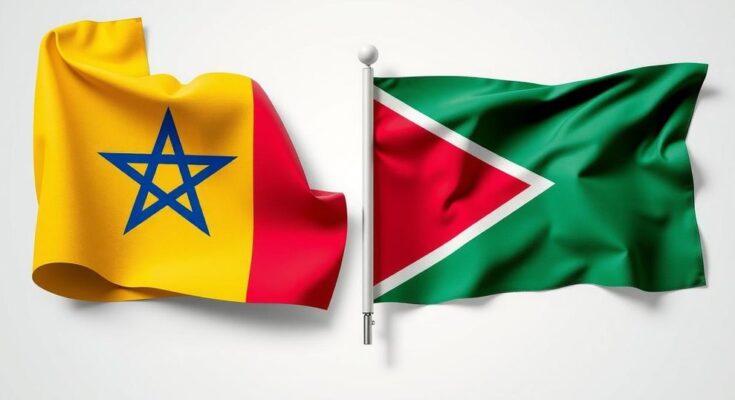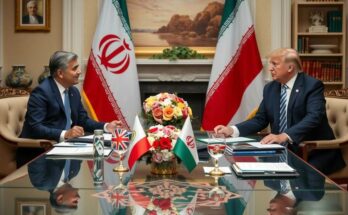The Ankara Declaration on December 11, 2024, marked a significant rapprochement between Somalia and Ethiopia, facilitated by Turkey. The agreement aims to improve relations and provide Ethiopia with access to Somali maritime resources. However, widespread skepticism exists, particularly among Somalis, concerning Ethiopia’s past territorial claims and military intentions. Future negotiations, set for February 2025, are seen as critical for establishing a lasting peace and cooperation, though many express concerns about preparedness and sincerity.
On December 11, 2024, a pivotal agreement known as the Ankara Declaration was made public, formalizing a rapprochement between the Federal Republic of Somalia and the Federal Republic of Ethiopia, facilitated by Turkish President Recep Tayyip Erdogan. This Declaration, representing the interests of both nations, was signed in a climate of urgency, as the two leaders, Somali President Hassan Sheikh Mahmoud and Ethiopian Prime Minister Abiye Ahmed Ali, sought to mitigate the escalating tensions that threatened peace in the Horn of Africa.
While the Ankara Declaration outlines a prospective roadmap for cooperation, there is significant skepticism among analysts, particularly within Somalia. Critics assert that Ethiopia’s historical claims on Somali territory and assertions of aggressiveness remain unresolved points of contention. Moreover, there are concerns regarding Ethiopia’s ambitions for maritime access through Somali waters, a subject that stirs apprehension among the Somali populace, given Ethiopia’s prior military presence in the region.
Despite promises of respecting Somali sovereignty, Abiye Ahmed’s previous rhetoric raises questions about his true commitment to preserving Somalia’s territorial integrity. The negotiation process, scheduled to commence in February 2025, is viewed as ambitious and possibly inadequate for addressing the complex historical grievances and aspirations of both nations. There is a necessity for expert negotiation teams equipped to handle issues surrounding land access, resource sharing, and the management of corridor infrastructures vital for facilitating trade and cooperation.
Additionally, Somalia’s trepidation regarding the establishment of an Ethiopian naval force underscores the regional distrust between these neighbors. To foster a sustainable relationship, it is imperative for both countries to establish clear responsibilities and agreements regarding the management of their respective infrastructures. The declaration—which aims to establish commercial accessibility for Ethiopia—is welcomed as a potential avenue for economic growth, yet requires careful implementation to build trust and ensure long-term stability.
In conclusion, while the Ankara Declaration could signify a turning point for both Somalia and Ethiopia, achieving a lasting peace and collaboration will necessitate continued dialogue and engagement. The two nations share a rich history and a burgeoning population of 164 million, creating ample opportunity for joint prosperity. Therefore, it is essential for both leaderships to tread carefully and prioritize the welfare of their citizens to avoid repeating historical conflicts can securing a brighter future for the Horn of Africa.
The Horn of Africa has a tumultuous history marked by conflict, territorial disputes, and economic challenges. Recent events have exacerbated tensions between Somalia and Ethiopia, historically intertwined yet often at odds due to territorial claims and political maneuvering. The Ankara Declaration of December 2024 aimed to reset relations by facilitating a dialogue and potentially enabling Ethiopia land access to the sea through Somali territory, with Türkiye acting as a mediator. The agreement represents a significant step towards economic integration and diplomatic engagement but is met with skepticism regarding its implementation and sincerity from both sides, given past grievances and territorial integrity issues.
The Ankara Declaration presents an opportunity for rejuvenation in Somali-Ethiopian relations. While initial reactions highlight skepticism and historical grievances, the framework of the agreement does allow for potential goodwill if both leaders can secure lasting and genuine cooperation. Forward-looking negotiations must prioritize regional stability and economic development, building a pathway toward a collaborative future. In doing so, Somalia and Ethiopia can pool their resources and populations to form a formidable economic unit in the broader Horn of Africa.
Original Source: www.eurasiareview.com




